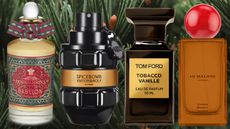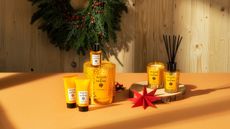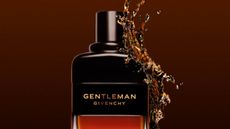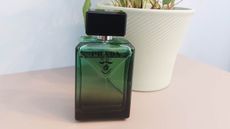Wellness
The latest Wellness breaking news, comment, reviews and features from the experts at T3
Explore Wellness
-

5 wellness gadgets you need to start 2026 feeling your best
New year, new you – after all
By Lizzie Wilmot Published
-

5 signs your mattress is dirty after Christmas – and how to reset it
Upgrade your sleep in 2026 with these mattress reset tips
By Bethan Morgan Published
-

I keep waking up in the night, but this hack has helped me fall back to sleep fast
This is the one sleep hack I’m bringing with me into the new year
By Bethan Morgan Published
-

I tried Woojer’s wellness mattress topper to improve my sleep and recovery – but was it worth the cost?
I slept on the Woojer MAT for weeks to see if it helped my sleep and restfulness
By Lucy Miller Published
-

Best hair straighteners 2025: for sleek, frizz-free hair
Our top picks for envy-worthy locks
By Lizzie Wilmot Last updated
-

6 superfoods you should be eating to avoid the winter flu, according to fitness experts
From black garlic to raw honey, these superfoods can boost your immunity this winter
By Bethan Morgan Published
-

Shark just launched its FlexStyle in a stunning burgundy winter edition
It would make the perfect Christmas gift for any beauty lover
By Lizzie Wilmot Published
-

Best electric shaver 2025: top grooming options from Braun, Philips and more
Reduce stubble to rubble with the best electric shavers from Braun, Philips and other brands
By Lizzie Wilmot Last updated
-

Best body groomer 2025: find the top manscapers on the market
Find the best body groomers and the best manscaping groomers for your back, torso, downstairs and everywhere else...
By Lizzie Wilmot Last updated
-

Best duvet 2026: snuggle up for a great night's sleep
Find the best duvets to snuggle up with, from down, wool, synthetic and beyond
By Bethan Morgan Last updated
-

Best wake up light 2026: sunrise lamps to wake you up naturally
Banish the morning blues with the best wake up lights, from Lumie, Philips, Beurer and more
By Bethan Morgan Last updated
-

Shark FacialPro Glow review: incredible at-home skincare with professional results
Does this clever skincare gadget deliver? (Spoiler: yes)
By Lizzie Wilmot Published
-

This ‘world’s first’ wellness mat relieves pain and improves sleep – but it’ll cost you
Woojer introduces the MAT, a wellness-driven mattress topper
By Bethan Morgan Published
-

3 walking meditations you need to try to beat the winter blues
These walking meditations help improve your mood and move your body for a mental health boost
By Kat Bayly Published
-

I tried Healf Zone’s at-home test, and was surprised by what nutrients I was deficient in
Healf Zone promises to improve my wellbeing – but is it worth the cost?
By Bethan Morgan Published
-

9 best Christmas fragrances for men: festive scents from Tom Ford, Maison Margiela, Burberry and more
Smell like Christmas with T3’s picks of festive fragrances and colognes
By Bethan Morgan Published
-

My favourite sleep app just got an AI-powered sleep coach – and I can’t wait to try it
Sleep Cycle just gave its app an AI upgrade that could drastically improve your sleep
By Bethan Morgan Published
-

This smart wearable acts as your own personal thermostat – and it looks great too
Embr’s new Wave 2 might look like a smartwatch but there’s much more to it
By Bethan Morgan Published
-

“Warm your feet or you won’t sleep!” – doctor explains how to keep feet warm during UK cold snap
Combat the UK’s cold snap with these quick feet warming tips
By Bethan Morgan Published
-

Therabody TheraFace Mask Glo review: a smarter, simpler take on LED skincare
The TheraFace Mask already had a strong reputation, so how well does the new Glo version perform? Let's find out
By Lizzie Wilmot Published
-

Ultrahuman Home gets major sleep upgrade and can even detect snoring
Ultrahuman Home can now track your sleep better than before
By Bethan Morgan Published
-

Renpho Artemis LED Light Soft Mask review: affordable, comfortable and effective LED therapy
This affordable LED face mask packs more lights than pricier rivals and promises serious skin perks – but does it deliver?
By Lee Bell Published
-

I'm a sleep expert – this is the trick I use to get out of bed when it's cold
This is the trick you need when you really don’t want to get out of bed
By Bethan Morgan Published
-

The Braun Series 9 Pro+ has been our top electric shaver for 1 entire year – here's why it's still our favourite
With its premium build and impressively close shave, the Braun Series 9 Pro+ remains one of the best electric shavers on the market
By Lizzie Wilmot Published
-

New Acqua di Parma Christmas collection is filled with gifts for the ones you really love
There's something for every taste here
By Sam Cross Published
-

6 best boozy fragrances for men 2025: alcohol-inspired scents from Tom Ford, Givenchy and more
Who doesn’t want to smell like whiskey, right?!
By Bethan Morgan Published
-

Best mattress topper 2026: give your old bed a new lease of life
Find the best mattress toppers to make your old mattress softer, firmer, and more luxurious
By Bethan Morgan Last updated
-

Best bed in a box mattress 2026: the most convenient sleep upgrade around
Discover the best bed in a box mattresses, all rolled up, boxed and delivered to your door
By Bethan Morgan Last updated
-

I tested Prada Paradigme – clean, citrusy and gets the best compliments
If you love zesty, sharp scents, then Prada’s latest fragrance is for you
By Bethan Morgan Published
